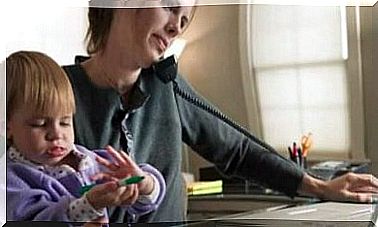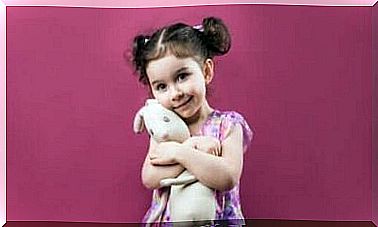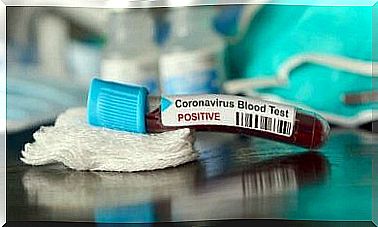10 Simple Exercises To Improve Your Child’s Attention
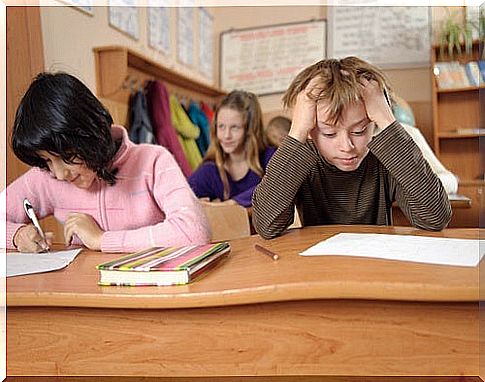
Improving the attention of their children is one of the most frequent challenges that parents face. If we start to put into practice the recommended exercises to improve this aspect, the results can improve, not only this process, but also the relationship between parents and children.
Sometimes attention deficit is a more serious problem than we think ; it is easy to see adults suffering from a conduct disorder. However, every mother’s desire is for her children to overcome this situation so that it is not present in their adult life.
When our children begin to show frequent distraction, it is necessary to be alert to the possible presence of other symptoms that indicate a more serious disorder. In general, attention deficit relates to any element that reduces the process as such. This means that it is not necessary to reach a phase of total lack of attention to start worrying, vice versa it is sufficient that there is a lack of attention.
How to recognize the attention deficit?
This conduct disorder is directly related to that of hyperactivity . In this sense, it is possible to notice that our children are a bit hyperactive, but perhaps we are not ready for the idea of facing a more serious problem.
The cause of the hyperactivity was mistakenly attributed to some brain injury, mental retardation or some affective problem. However, it has been determined that it is mainly a conduct oriented towards a lack of interest, self-control, observation and maintenance of an activity. In other words, the lack of attention.

Children who find themselves in this situation usually experience symptoms such as the following:
- They seem not to listen when you speak to them directly.
- They don’t play the same game for a long time.
- They tend to make scholastic errors, because they have missed some steps.
- They present organizational difficulties.
- They are not comfortable with activities that involve intense mental skill.
- They fail to complete their assigned tasks and get lost in instructions.
- They are likely to lose important items.
If we quickly adopt the necessary techniques to solve any of our children’s problems, we can be sure of getting good results.
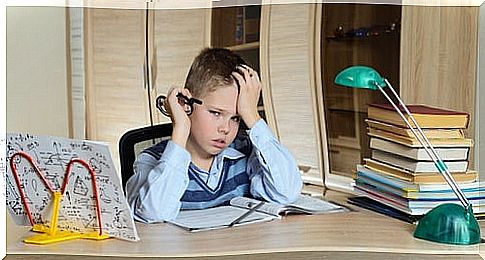
To improve your child’s attention, do these simple exercises
- Start helping him set clear goals and objectives: the best thing in these cases is to plan short-term goals. This makes it mandatory to plan properly. Furthermore, the results can be visible in a short time.
- Try to create a suitable environment: sometimes the same parents create distractions for their children, for this reason we must avoid overloading the environments with possible sources of distraction. Create a suitable environment for each activity, making sure that it is in keeping with the desired intent.
- Use study tools: even if the little ones have not reached a very advanced level of education, we can integrate study techniques that are useful for their case. For example, structuring the information in maps, elaborating summaries and underlining can help to concretize the theme and study without distractions.
- Identify the cause of inattention: Sometimes we may believe that a certain element of our environment is not a distraction for children, but perhaps the tiniest object can cause disinterest in their tasks. Try to notice the interest they show towards a particular element and eliminate it immediately.
- Keep what you need at hand: avoid neglecting the child while carrying out his activities because you have not gathered all the necessary tools; this causes a demotion in the activity, because the child can lose his goal very quickly if we stop constantly looking for something.
- Choose the most suitable games to improve his attention: find the differences, find the word, rebus, drawings to copy and with numbers, board games individually or in pairs, memory games, creation of small, abstract and linear figures.
- Strengthen his confidence: avoid using words that could curb his interest. Always remember to make positive comments about the child’s work and at the same time allow him to strengthen himself.
- Identify the correct space: make sure that the study area has the optimal conditions and lead the child to this place for the duration of the activity. Remember that if you change spaces, the child will start from scratch in his observation.
- Lead by example: avoid giving rise to distractions in adults who are helping to complete the process; if the child is prone to distraction, try not to feed the problem.
- Take control with love: if your child has manifested the symptoms of attention deficit, it is time to take control of his activities, but always respecting his space. Never forget that your child will only behave better if you are confident and loving.

